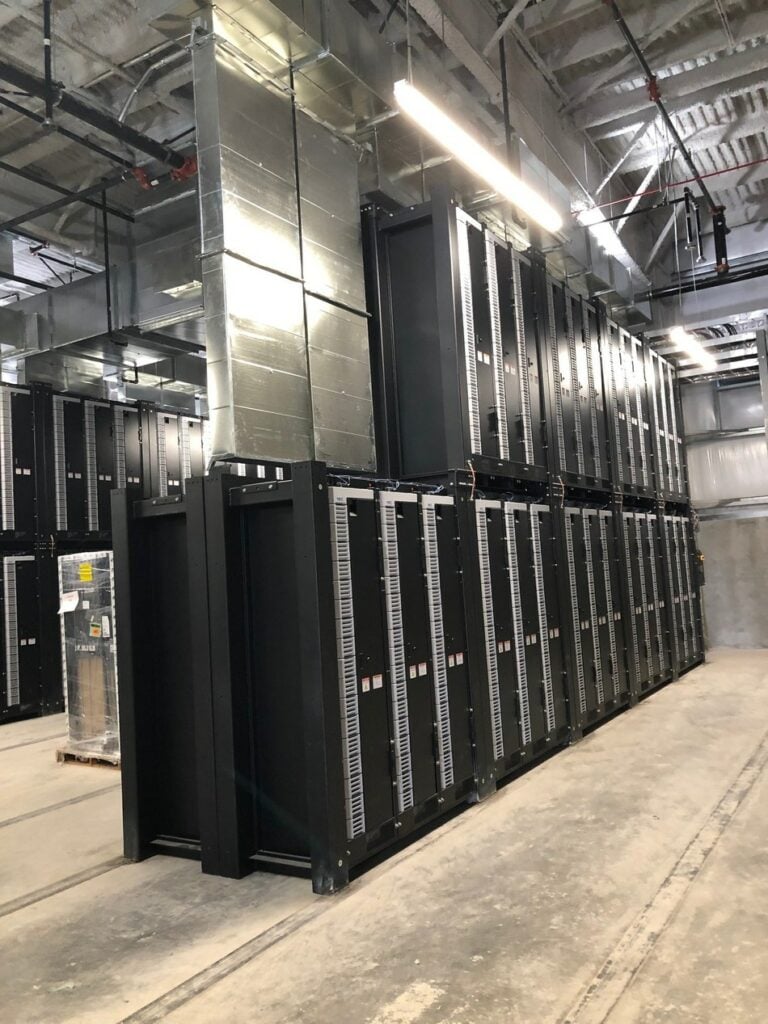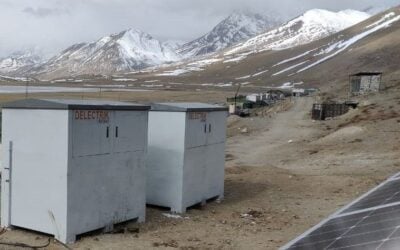
An eight-hour duration lithium-ion battery project has become the first long-duration energy storage resource selected by a group of non-profit energy suppliers in California.
California Community Power (CC Power), a Joint Powers Agency representing a group of 10 Community Choice Aggregator (CCA) energy suppliers in the state, made the announcement yesterday.
Seven member organisations which are hosting the procurement effort together, voted to enter into an energy storage service agreement for the project with its developer, REV Renewables, a subsidiary of LS Power.
The project, called Tumbleweed, will have 69MW output and 552MWh capacity and is expected to come online in 2026. It will be connected to the California Independent System Operator (CAISO) grid.
Try Premium for just $1
- Full premium access for the first month at only $1
- Converts to an annual rate after 30 days unless cancelled
- Cancel anytime during the trial period
Premium Benefits
- Expert industry analysis and interviews
- Digital access to PV Tech Power journal
- Exclusive event discounts
Or get the full Premium subscription right away
Or continue reading this article for free
This marks the “first major procurement” for long-duration storage by CC Power, a representative of Silicon Valley Clean Energy, one of the CCA groups, told Energy-Storage.news.
“Long-duration energy storage is a vital resource, needed to amplify the value of renewable power, and accelerate California’s shift to a clean, reliable and affordable grid,” Silicon Valley Clean Energy CEO Girish Balachandrian said.
It comes as a result of the regulatory California Public Utilities Commission (CPUC) ruling that energy suppliers in the state must bring online 11.5GW of energy resources — nearly all of which have to be low or zero-emissions — within five years to ensure what it defined as ‘Mid-Term Reliability’.
This was to mitigate the impacts of a number of natural gas power plant retirements, as well as the imminent retirement of the Diablo Canyon nuclear power plant.
Load-serving entities in California including the three main investor-owned utilities (IOUs) and CCAs — which are energy suppliers that give member-customers the choice of where and how their power is generated — were ordered by the CPUC to procure varying capacities of resources.
Energy-Storage.news reported earlier this week as one of those IOUs, Pacific Gas & Electric (PG&E), announced its own agreements with 6.4GWh of four-hour lithium-ion battery projects, including an expansion phase planned at Vistra Energy’s Moss Landing Energy Storage Facility, the world’s biggest lithium-ion battery energy storage system (BESS) project to date. The 1.4GWh expansion would bring Moss Landing’s capacity up to 3GWh.
In June 2020, a year before that Mid-Term Reliability ruling, a group of 11 CCAs had already shown interest in procuring long-duration resources. The group issued a Request for Information seeking potential providers of long-duration storage with a minimum eight-hour discharge capability.
That initial call for information was followed up in October 2020 with the launch of a Request for Offers (RFO) seeking up to 500MW of long-duration grid-charged resources with 8-16 hour discharge, offering 10-year contracts. By that time, the number of CCAs taking part had whittled down to eight, with the others expected to issue their own RFOs in due course.
The CC Power Joint Powers Agency has been established since the RFO was issued, and the agency said that the agreement with REV Renewables’ Tumbleweed project satisfies more than half (55%) of the Mid-Term Reliability ruling’s compliance requirements — handed down to all CPUC-jurisdiction load-serving entities — that they must procure energy from eight-hour minimum long-duration storage facilities.
The elected boards of each of the seven CCAs will now undertake their own review and approval processes for the agreement.
“This first project is an exciting milestone that shows how CCAs work together to advance our shared goals in the transition to a carbon-free grid,” Balachandrian said.
The importance of long-duration energy storage in helping California meet climate and air pollution goals while maintaining electricity system reliability over the longer term has been strongly emphasised throughout the state, not least of all by its Governor Gavin Newsom. Newsom’s recently-announced budget for 2022-2023 included US$380 million in funding to support long-duration energy storage projects.
The result of the CCAs’ solicitation is interesting in that the majority of lithium-ion BESS connected to the grid around the world generally goes up to a maximum four-hour duration. Expectations have been that other technologies such as flow batteries or thermal energy storage might be competitive for applications requiring eight hours or longer. However, it appears the sheer scale of the lithium-ion battery industry and its rapid cost reduction curve have kept the technology ahead of other options in this case.
At an event hosted by our publisher Solar Media last year, energy storage industry analyst George Hilton of IHS Markit said however that flow batteries could become competitive with lithium over eight hours and longer from around the end of this decade.





